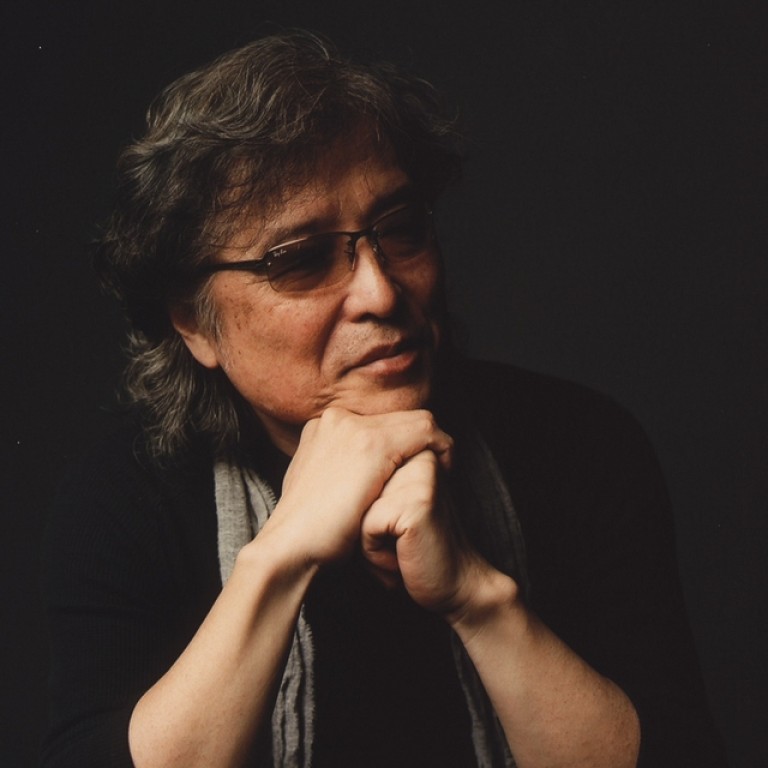
Soji Shimada, Japanese god of mystery, is still thrilled to be making a killing
Shimada's debut, The Tokyo Zodiac Murders, has just been reissued in a new English translation
Described as Japan’s “God of Mystery”, Soji Shimada studied art at university and worked as a truck driver and musician before he published his critically acclaimed debut, The Tokyo Zodiac Murders, which was shortlisted for the Edogawa Rampo Award. The pioneer of the “shin-honkaku” (new orthodox) genre of logical mysteries, Shimada is credited with triggering the late 1980s boom in mystery novels that continues in Japan to this day. Subsequent works include the Detective Mitarai series and the Detective Yoshiki series, and he has also written a number of humorous mysteries. Born in Hiroshima prefecture and now 67, Shimada still plays the guitar and is a big fan of The Beatles and Sherlock Holmes. Pushkin Vertigo published a new translation of The Tokyo Zodiac Murders last month.
Why is The Tokyo Zodiac Murders still popular after so many years?
One of the key elements of the story is that it has a very clever trick in the middle. When you decorate a Christmas tree, you look at the ornaments and not at the trunk. I came up with the idea for the book and the trick after hearing of a real incident in about 1978. At the time, there were some strange banknotes circulating with sticky tape on them. I don’t want to spoil the story for anyone who has not read it, but I was able to work that into a brilliant idea that is the centre of the story. That keeps the story fresh today.
Why did it take you so long – you were in your 30s – to write that first novel?
I was thinking that when I reached 30 I should be mature and able to understand the rules of society and the world. I should be able to think as a mature person, to understand how women think and so on. So I wanted to be mature when I wrote my first book. But when I turned 30 I found out that I was not mature at all.

There were so many elements that fascinated [me] and there was a time when mysteries made up 70 per cent of pure literature in Japan. My approach to mystery is that from the beginning, anything and everything can be a mystery. Everything in nature is a mystery but we can find the solution by following the logical steps. Any natural phenomenon can be seen as a mystery. When someone goes to a doctor and says something is wrong with their body, then the doctor has to be a detective, to ask questions and to investigate until he finds a solution to the problem. There are a lot of mysteries in medicine, so a story becomes a kind of a thesis.
Who were your own inspirations early in your career and who are they now?
It would be impossible for me to name just one, but I have always been fond of British authors. Arthur Conan Doyle, Jerome K. Jerome and Saki. Especially Saki, and I do try to imitate his writing style.
You have been described as the “God of Mystery” – how does that make you feel and does it increase the pressure on you?
I don’t take the God of Mystery title seriously, so I don’t feel much in the way of pressure or a burden. And anyway, when you read God backwards, it only says dog.
Today, where do you draw your inspiration from?
It’s difficult to say where the best ideas come from because they can come at any time, at any place, when I’m doing anything. I used to get a lot of ideas from watching TV documentaries and my first book came to me from watching the news. If this new version of the book sells well, my editor tells me that they will translate another of my books, Murder in the Crooked Mansion. I got the idea for that novel when I was drawing a building. I studied art at university, so maybe some ideas come to me because of that background.
What is the hardest part about writing?
I find writing quite easy and I really enjoy it. It’s fun and writing is just as enjoyable to me as playing Beatles songs on my guitar. Perhaps the only hard part is when I start writing, but once I’m into the story then I have many things in my mind that I want to get down, so I often can’t stop writing. I really enjoy proofreading what I wrote the day before.
What are you working on, and when will it be completed?
I’m just finishing a new novel and it’s a parody with Sherlock Holmes as the main character. A regular reader of Holmes mysteries will be aware that he injects a solution of 7 per cent cocaine three times every day. For that sort of drug dependency, he should be admitted to hospital. I realised that Dr Watson would have to be hiding his cocaine problem and I reread the books with that in mind – and found parts where you can really see Holmes’ symptoms. In this new book I let myself laugh at some of the descriptions and situations – which I think can be seen as cocaine illusions. Like the time a snake drinks milk and is attracted by sounds. A snake won’t drink milk and it cannot hear; it senses through vibrations. So these descriptions are nonsense and I make fun of them in Fifteen New Fried Rats.

